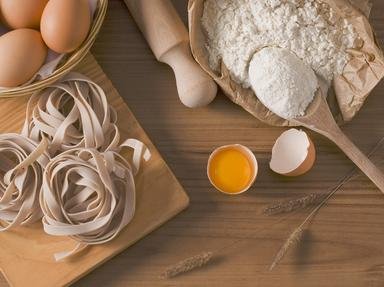Quiz Answer Key and Fun Facts
1. Although scones had been around long before this, they were first mentioned officially in 1513 in which famous dictionary?
2. Of the following choices, what name was given to the original Scottish scone?
3. In which country associated with Devonshire teas and cucumber sandwiches, are scones sold in bakeries and supermarket a rather profitable industry?
4. Why are some scones now being sold with a square shape instead of the traditional round one?
5. How did many home bakers once produce the traditional precisely rounded shape of each scone in a batch?
6. In Scotland and Northern Ireland, scones are often made from which product?
7. In which two British Commonwealth countries are griddle scones a favourite?
8. In Australia in more recent years, scones are often made with which very lightly coloured soft drink?
9. Australia is rather famous as well for scones made from which other mashed vegetable?
10. In Hungary they serve their scones with which pizza related topping?
Source: Author
Creedy
This quiz was reviewed by FunTrivia editor
Bruyere before going online.
Any errors found in FunTrivia content are routinely corrected through our feedback system.

